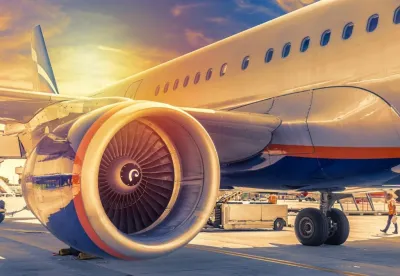
According to Alpen Capital's industry account published recently on the hospitality industry in the region of Gulf Cooperation Council (GCC), the region’s hospitality market is estimated to grow an yearly rate of 8.1% and is expected to hit $ 28.3 billion by the year 2016.
Alpen's report centers on major performance pointers of the GCC's hospitality industry for instance industry's projection, growth rates, occupancy rates, figure of guest rooms, RevPAR and average every day rate subsequently for five years. According to that report the occupancy rates are estimated to range from 67-73% between the year 2012 and 2016. The average each day rate is projected to be between $212 and 247 in the same period.
According to a consultant of the TRI Hospitality Consulting Christopher Hewett, looking at the GCC area, which includes Bahrain, Kuwait, Oman, Qatar, Saudi Arabia, and UAE, is not easy since every marketplace has its individual peculiarities. He added that every country should be analyzed separately on a cross segment of variables.
The report showed that the Saudi Arabia is still the major GCC marketplace in regard to revenues followed closely by the UAE. The study further indicated that Qatar is anticipated to be the highest growing market thanks to the increasing business and leisure tourism as the country prepares to host the FIFA world cup tournament in 2022.
The UAE hospitality sector is powerfully selling itself as a premier tourist destination and its hospitality industry is projected to grow at an annual expansion rate of 10 percent from 2012 to 2016 as a consequence of high tourist arrivals as well as strong operating metrics. The tourist arrivals are expected to increase by 5.3 percent from 2012 to 2016.
Hotel rooms are also anticipated to grow at 5.3 from 96,992 to 125,383 in Abu Dhabi and Dubai by 2016. There are at least 93 hotels planned and others under construction in the UAE. The TRI Hospitality Consultants have reported that the estimates for future hotel room supply are within their projections. Hewett said "that we believe the growth in hotel rooms especially Abu Dhabi will put more demands on the market that is experiencing increased supply challenges.
The residence rates are likely to increase from 71 percent in the year 2011 to around 75.1 percent by the year 2016 when the tourist arrivals are predicted to swell tremendously. The business travel is also increasing steadily and the demand for the high end market is also estimated to grow.
The average day by day rate is estimated to grow from $183.5 in 2011 to at least $220 by the year 2016. The hotel room supply in the area is anticipated to increase with the rising demand; however experts warn that an oversupply of hotel rooms could negatively affect the hospitality market.
Hotels in Abu Dhabi are expected to continue experiencing problems as a consequence of a rise in supply and restricted demand for the next three years. The ongoing development of leisure superstructure especially on Saadiyat is a good move towards improving the leisure tourism in the region. The main challenge is in the hotels which might fall into a rooming rate battle with new hotels and still provide their guests with value for their money.












